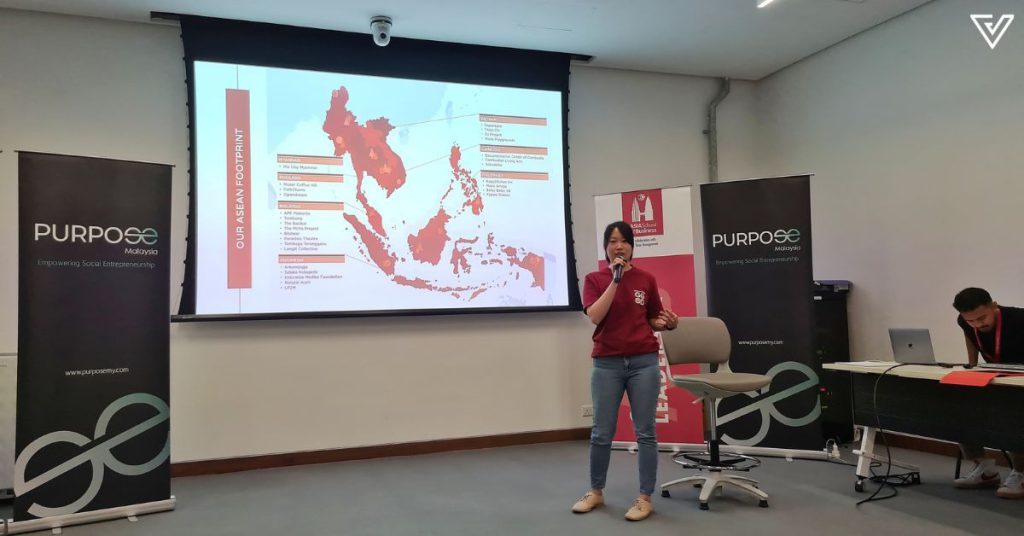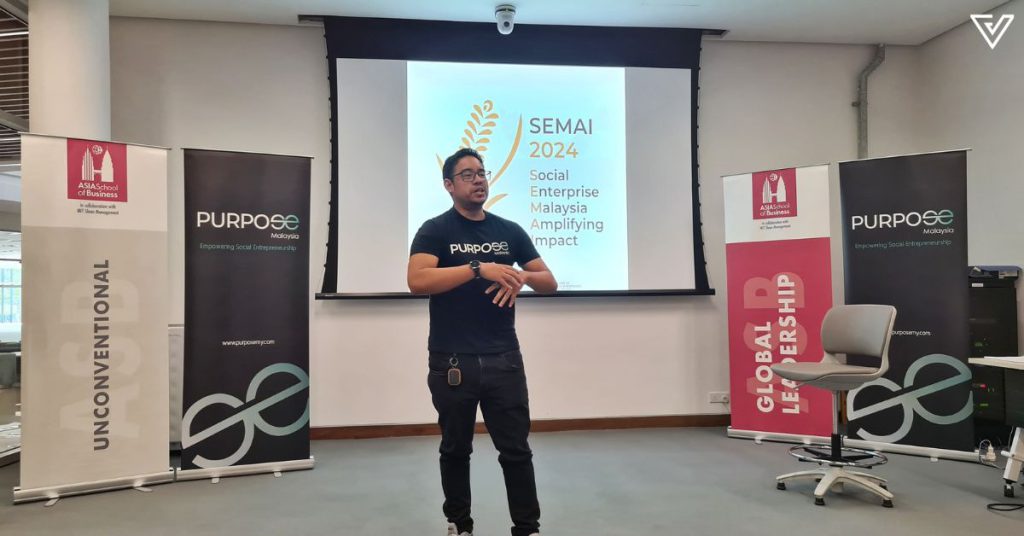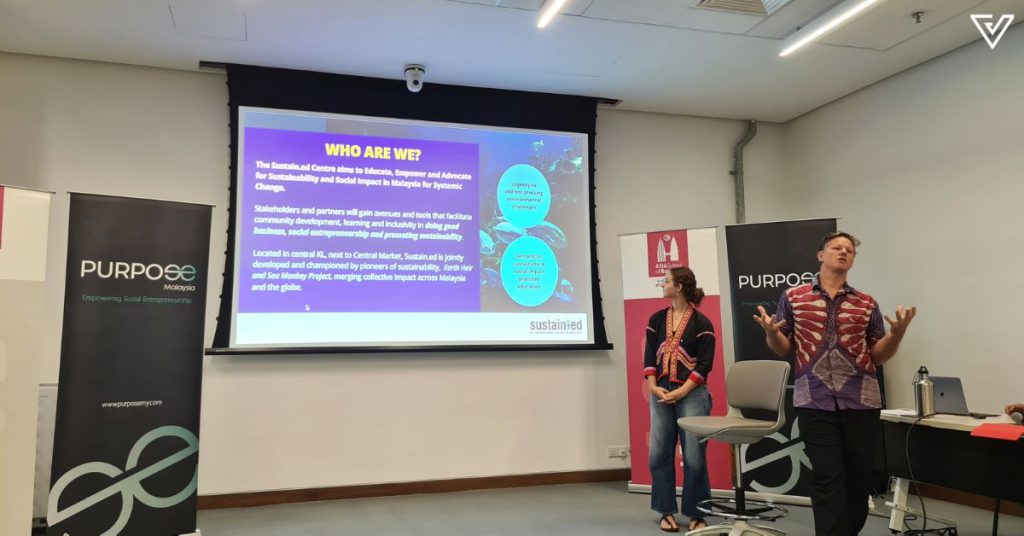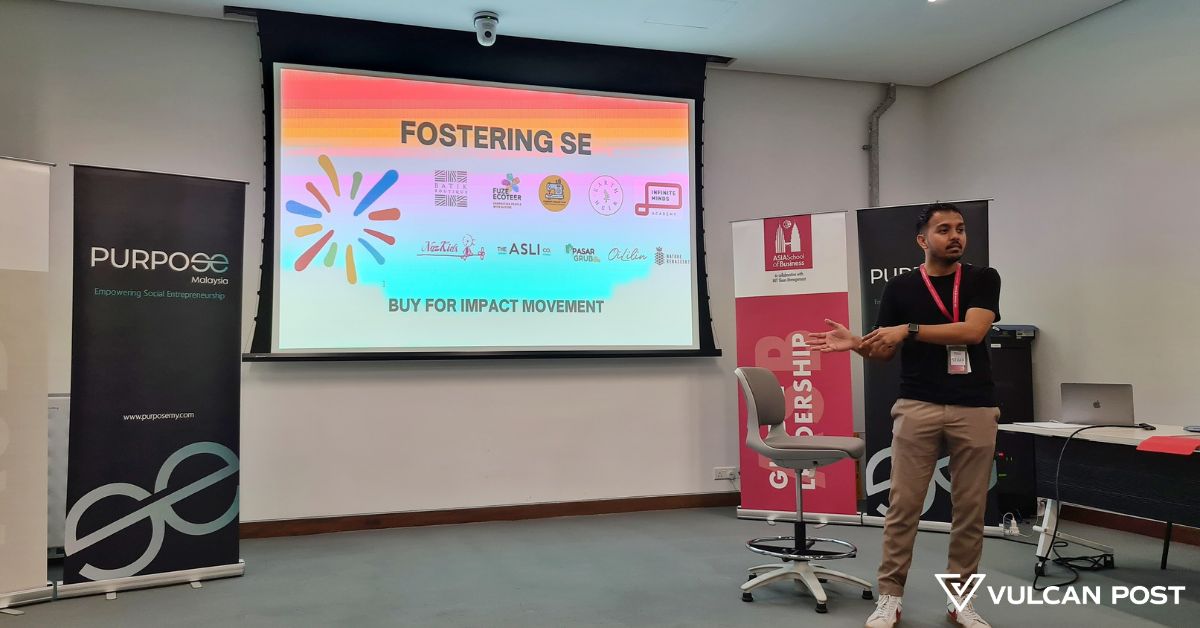2019 up until 2021 seemed to be the years for social enterprises in Malaysia. Our team covered quite a number of interesting local social enterprises then.
Suddenly, in 2022, silence. A major contributing factor could have been MaGIC-TPM becoming MRANTI in late 2021.
You see, MaGIC launched an initiative in 2019 that allowed businesses with social impact to get officially recognised as a social enterprise. It was a national certification called Social Enterprise Accreditation (SE.A).
It was at this time that many social enterprises got officially accredited, boosting their visibility in our startup ecosystem. MaGIC was also very active in hosting various events that bridged consumers and social enterprises.
Once MRANTI was established though, it seemed like these efforts just… faded into the background, with little to no coverage of them.
But that doesn’t mean that there are no longer resources out there that aspiring or existing social enterprises can benefit from.
A session at Startup Week Malaysia 2023 highlighted four organisations helping pave the way for more social enterprises in Malaysia. Here’s who they are, and what they do.
1. Chamber of Social Entrepreneur Development (CSED)
CSED is a non-profit organisation that was set up in 2018 to improve the social entrepreneurship ecosystem in Malaysia.
It plays an active role in spearheading interventions, fostering collaborations, and catalysing development efforts across various sectors.
What they offer includes a range of services to support social enterprises, such as bridging the gap with government and corporates, including networking events, mentorship programmes, and procurement opportunities.
In 2022, CSED restarted MaGIC’s Buy For Impact initiative to have more on the ground events where stakeholders and consumers in the social enterprise landscape could come together and network.
That’s only one of CSED’s events though, and if CSED President Redza Shahid’s plans go well, we may see a lot more social enterprise-focused events in 2024.
For social entrepreneurs, CSED also has an annual membership which includes voting rights as well as the opportunity to participate in the Chamber’s networking, programmes, meetings with government stakeholders, and other events. The annual subscription fee is RM50 per person, and is valid for the entirety of 2024.
But the organisation’s efforts need further reach, which is why they also advocate for systemic government support, including the creation of a dedicated Social Entrepreneurship Department within the Ministry of Entrepreneur Development Malaysia.
2. AirAsia Foundation

The philanthropic arm of AirAsia Group, AirAsia Foundation was established in 2012. For the past decade, it’s been helping fund social enterprises across ASEAN.
The organisation awards social entrepreneurs with seed funding and mentorship throughout the grant period. Plus, since it’s part of AirAsia, it can tap into AirAsia’s network strengths to help social enterprises make connections.
Some requirements for applying for their grant are:
- Your social enterprise must have a minimum two-year business track record
- You should explain your social objectives and what impact you want to have on your intended beneficiaries
- Your application must clearly explain how AirAsia Foundation’s investment will help you generate income that can be reinvested into growing your business
Once you’ve applied for the grant, AirAsia Foundation’s decision will involve a review of your online presence, further contact for a clear outline of your budget and timeline, and an on-site evaluation of your project.
Applications that pass all of the above will be reviewed by their Council of Trustees who will deliberate and make their recommendations.
The total application review process may take up to six months.
As of 2021, it’s funded 28 social enterprises across seven countries, with some of its Malaysian beneficiaries being Tonibung, The Basikal, The Picha Project, and Langit Collective.
3. PurpoSE

PurpoSE’s work largely involves bridging the social enterprise ecosystem in Malaysia. They impact three parties: social enterprises, corporates, and the public.
For social enterprises, they provide advisory services, connection to mentors, and participation in fellowships and workshops to address the gaps that they are facing.
An example of how they help social enterprises is through “Fellows with PurpoSE”, a four to six-month programme matching social enterprises with professional individuals aiming for cross-sectorial collaboration.
At the same time, they enable corporations and institutions to work better with social enterprises by providing strategic engagements, curated programmes, and targeted campaigns.
Through PurpoSE, people can also volunteer and be involved with social enterprises through the awareness activities, public engagements, campaigns, and education talks that the organisation holds.
4. Sustain.ed

Sustain.ed is a collaborative effort between the social enterprises Earth Heir and The Sea Monkey Project.
Based in Central Market, KL, Sustain.ed serves as a conceptual space where social enterprises come together to showcase sustainability education and initiatives.
Stakeholders and partners can also gain access to tools to foster community development, learning, inclusivity in ethical business, social entrepreneurship, and sustainability.
In brief, the place could be described as being split in two parts: a retail space for social impact products, and an educational hub for social entrepreneurship practices.
It’s not just about the product that social enterprises are selling, but how they’re selling it too. Because more often than not, products made by social enterprises tend to be pricier due to the ethical way materials are sourced, the fair wages given to the community, and other reasons.
But these are not things that the general public might be aware of, and consumers often think, “Why is it so expensive? I could get this same thing for so much cheaper elsewhere.”
Therefore, social enterprises often have to educate customers on what sets the product apart other than its price.
This is just one thing that budding social enterprises will learn how to do at Sustain.ed, and the organisation seems dedicated to actively hosting various workshops and other related events for the foreseeable future.
-//-
The social enterprise landscape in Malaysia is still quite a fragmented space, and much more needs to be done to unite it.
Then there’s also the matter of nurturing more local social enterprises.
The work of the four organisations highlighted here—along with others and programmes such as SEEd.Lab—will not go unnoticed.
And on the plus side, there is also SEMy2030, which is an action framework that provides a new national direction for the development of social entrepreneurship in Malaysia.
Though introduced under a previous government, it appears that the framework is still being used, which bodes well for the future of social entrepreneurship in Malaysia.
- Read more stories about social enterprises here.









